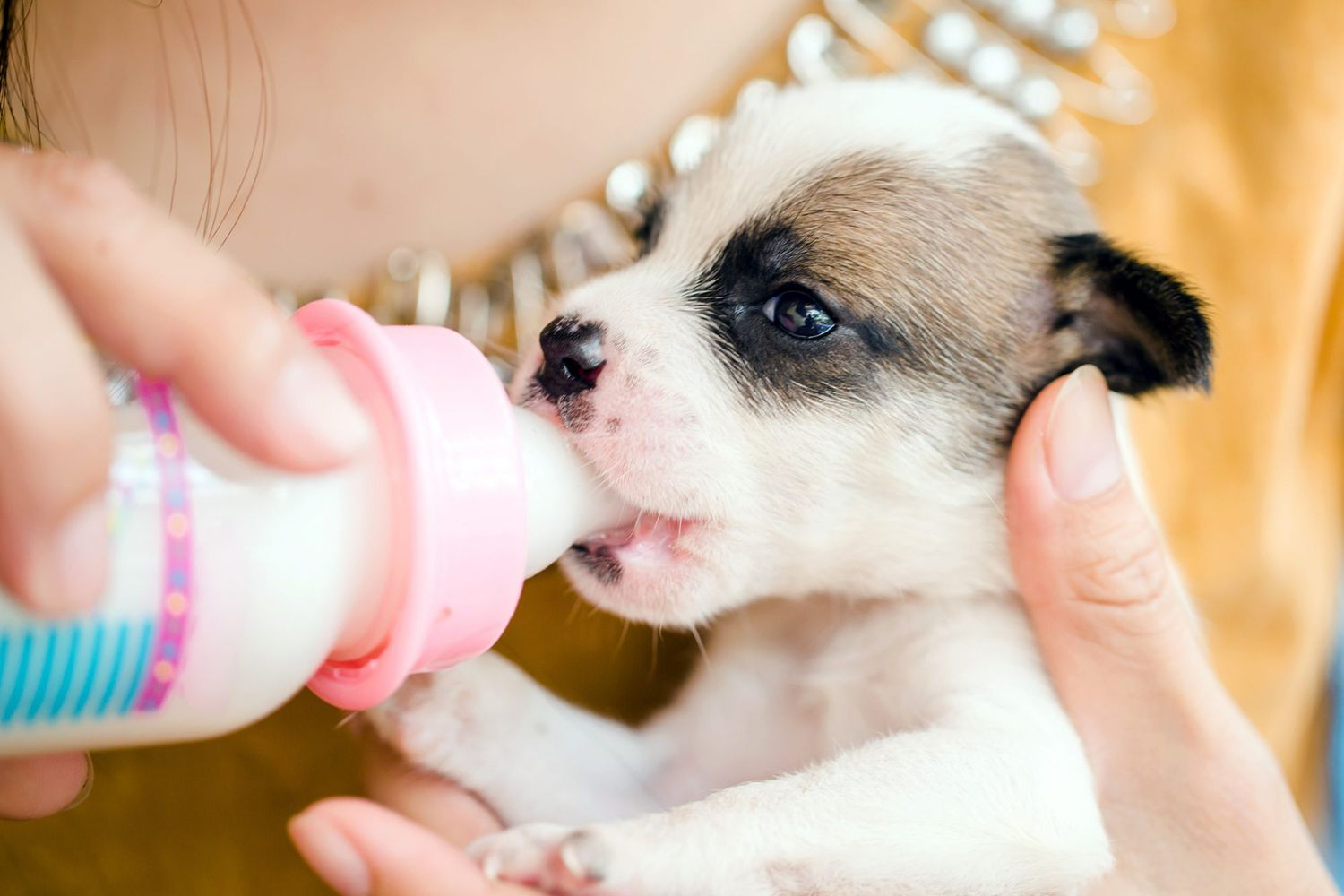Bringing home a new puppy is an exciting time for any pet owner. As you prepare to welcome your furry friend into your family, it's important to ensure that you have everything in place through the puppy checklist to make their transition smooth and comfortable.
In this article, we will provide you with a comprehensive guide, from essential puppy supplies to training tips and healthcare considerations, to help you navigate this journey with confidence.
So let's dive into the world of puppy care and make the new puppy arrival a memorable and enjoyable experience.

Preparing Your Home for a New Puppy: Puppy Proofing
As a pet owners Before bringing your new puppy home, it's crucial to puppy-proof your living space. Puppies of weeks of age are naturally curious and may explore their surroundings by chewing on objects or getting into places they shouldn't.
Here are some steps to take for a safe environment for other pets:
1- Secure loose wires, cords, and household chemicals out of your puppy's reach.
2- Remove any toxic plants from your home or garden.
3- Store shoes, clothing, and valuable items in closed closets or drawers.
4- Use baby gates to restrict access to certain areas until your puppy learns boundaries.
5- Keep small objects, such as children's toys or loose coins, off the floor.
New Puppy Checklist: Getting the Basics Covered
To ensure your puppy's comfort and well-being, it's essential to have the following new puppy supplies on hand before their arrival:
Puppy crate or puppy's bed:
crate training provide a safe and cozy space for your puppy to sleep and relax.
Puppy food and bowls:
Choose the best puppy food recommended by your veterinarian and ensure they have access to clean water.
Chew toys:
Puppies love to chew, so invest in good quality chew toys to redirect their chewing behavior and save your furniture.
Puppy pads or newspaper:
Use these for initial toilet training and accidents.
Collar, leash, and identification tag:
Essential for walks and identification in case your puppy gets lost.
Poop bags:
Keep your surroundings clean during potty training.
Puppy shampoo and grooming supplies:
Keep your puppy's coat clean and healthy.
Dog bed or blanket:
Provide a comfortable spot for your puppy to rest and sleep.
Food and water travel containers:
Useful for outings or traveling with your puppy.
Treats:
Reward good behavior and use them for training purposes.

Feeding Your New Puppy: A Healthy Start
A complete and balanced diet is vital for your puppy's growth and development. Consult your local vet to determine the best young puppy food for your the same diet particular breed and their age..
Puppies generally need to be fed more frequently than adult dogs and require a diet specially formulated for their nutritional needs.
Ensure a gradual transition from the breeder's or shelter's food to the new diet to prevent digestive upset. As your puppy grows, their dietary requirements will change, so regular consultations with your vet are crucial to ensure they receive appropriate nutrition, as some puppy food can be wet food or the same food for other pets.
Training Your New Puppy: Building a Strong Foundation
Proper training is key to raising a well-behaved and obedient dog. Here are some training tips for your new furry friend:
Start with basic commands:
Teach your puppy commands like sit, stay, and come using reward-based training methods. Positive reinforcement, such as treats and praise, works wonders.
Crate training:
Introduce your puppy to a crate as a safe space and aid in potty training and preventing destructive behavior when unsupervised till the crate trained method completed.
Toilet training:
Establish a routine, take your puppy outside frequently, and reward them for eliminating in the appropriate spot.
Socialization:
Introduce your puppy to different environments, people, and other dogs to help them develop good social skills.
Obedience training:
Consider enrolling your puppy in a puppy school or hiring a professional dog trainer to guide you through clicker training.
Healthcare for Your New Puppy: Vet Clinic Visits and Pet Insurance
A visit to the local council and vet clinic is a crucial step in ensuring your new puppy's well-being. Schedule an appointment for a comprehensive check-up, vaccinations, and advice on preventative care.
Additionally, consider investing in pet insurance to safeguard against unexpected medical expenses. Research different pet insurance companies to find the one that offers the coverage and benefits that suit your needs.
Introducing Your New Puppy to Other Pets
If you have existing pets at home, introducing them to your new furry friend requires careful consideration. Here are some steps to facilitate a smooth introduction:
Start with separate spaces:
Allow your new puppy and existing pets to become familiar with each other's scents and presence from a distance before any direct interactions.
Supervised interactions:
Gradually introduce your pets in controlled and supervised settings, rewarding good behavior and providing positive reinforcement.
Seek professional advice:
If you encounter difficulties, consult a dog trainer or behaviorist who can guide you through the process of having a well behaved dog.
Puppy's Dental Health: Caring for Those Growing Teeth
Just like human babies, puppies go through a teething phase as their baby teeth fall out and are replaced by adult teeth. It's important to take care of your puppy's dental health from an early age to prevent dental problems later in life.
Here are some tips:
Provide appropriate chew toy:
Chewing helps alleviate teething discomfort and promotes healthy teeth. Good dog chew toys specifically designed for puppies to ensure they are safe and durable.
Brush your puppy's teeth:
Introduce a toothbrush and puppy-friendly toothpaste early on to get your puppy used to the sensation. Regular brushing helps prevent plaque buildup and keeps their teeth clean and healthy.
Dental treats and chews:
Offer dental treats or chews that are designed to promote oral health. These products often have textures that help reduce plaque and tartar buildup.
Regular dental check-ups:
Schedule regular dental check-ups with your vet to monitor your puppy's oral health and address any dental issues promptly in the puppy teeth.
Helping Your Puppy Settle In: Creating a Comfortable Environment
When your new puppy arrives home, it's important to provide them with a comfortable and secure environment where they can feel safe and loved.
Here are some tips to help your puppy settle in according tp puppy's age:
Establish puppy training routine:
Set a consistent schedule for feeding, exercise, potty breaks, and bedtime. Puppies thrive on routine, and it helps them feel secure and understand what is expected of them.
Create a cozy sleeping area:
Set up a warm and comfortable bed or crate for your puppy to sleep in. Place familiar blankets or toys to provide a sense of familiarity and security.
Give them space:
While it's important to spend time with your puppy, also allow them some alone time to rest and relax. Overstimulation can be overwhelming for young puppies.
Provide mental and physical stimulation:
Engage your puppy in age-appropriate play and activities to keep them mentally and physically stimulated. Puzzle toys, interactive games, and short training sessions can help prevent boredom and make a puppy happy.
Responsible Puppy Care: Vaccinations, Desexing, and Microchipping
As a responsible dog owners, it's crucial to prioritize your puppy's health and well-being.
Here are some important aspects of responsible breeder:
Vaccinations:
Follow your vet's recommended vaccination schedule to protect your puppy from common diseases. Vaccinations typically start at around 6 to 8 weeks of age and continue throughout the first year.
Desexing (spaying or neutering):
Discuss with your vet the appropriate time for desexing your puppy. As your puppy matures can encounter certain behavioral issues. This procedure not only helps control the pet population but also offers health benefits and can reduce unwanted chewing.
Regular vet check-ups:
Schedule regular visits to the vet to monitor your puppy's growth, address any health concerns, and receive advice on parasite prevention, nutrition, and overall well-being.
Answers to Common Questions About Welcoming a New Puppy Checklist
1. What age should I bring home a new puppy?
Puppies are typically ready to leave their litter mates and go to their new homes between 8 and 12 weeks of age. This age range ensures that they have had sufficient time with their mother and litter mates for proper socialization and learning.
2. How do I choose the best puppy food?
Consult with your veterinarian to select the best puppy food for your particular breed and their specific nutritional needs. Look for high-quality brands that offer complete and balanced diets specifically formulated for puppies.
3. How can I help my puppy settle in and feel comfortable in their new home?
Create a safe and cozy space for your puppy sleeping in a comfortable bed or crate. Establish a consistent routine, provide mental and physical stimulation, and give them plenty of love, patience, and positive reinforcement to have very exciting time with you by their side.
4. When should I start training my puppy?
Training should start very early as your puppy's arrival is done. Basic commands and socialization can begin as soon as you bring your puppy home. However, keep in mind that formal obedience training classes may be more suitable once your puppy is a few months old and has received their vaccinations and don't forget to reward good behaviour.
5. Is pet insurance necessary for my puppy?
While not mandatory, pet insurance can provide financial protection against unexpected veterinary expenses. It's a personal choice that depends on your budget and risk tolerance. Research different pet insurance companies and policies to find the coverage that suits your needs.
